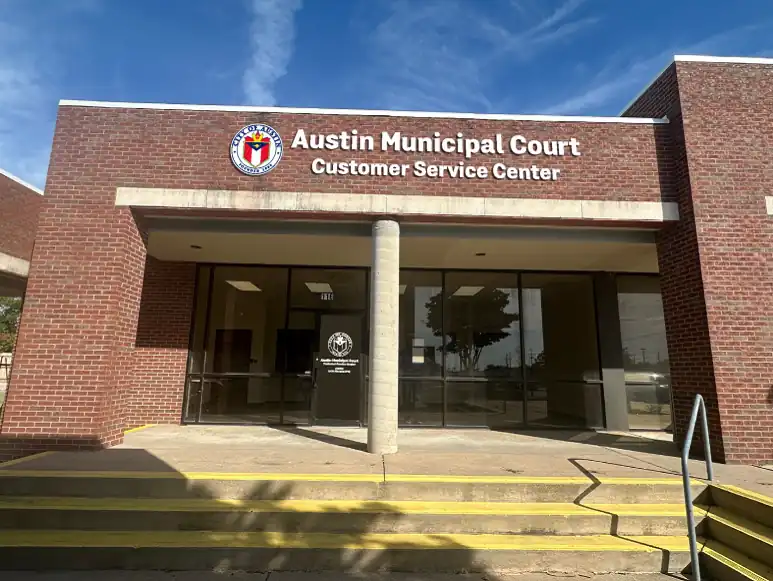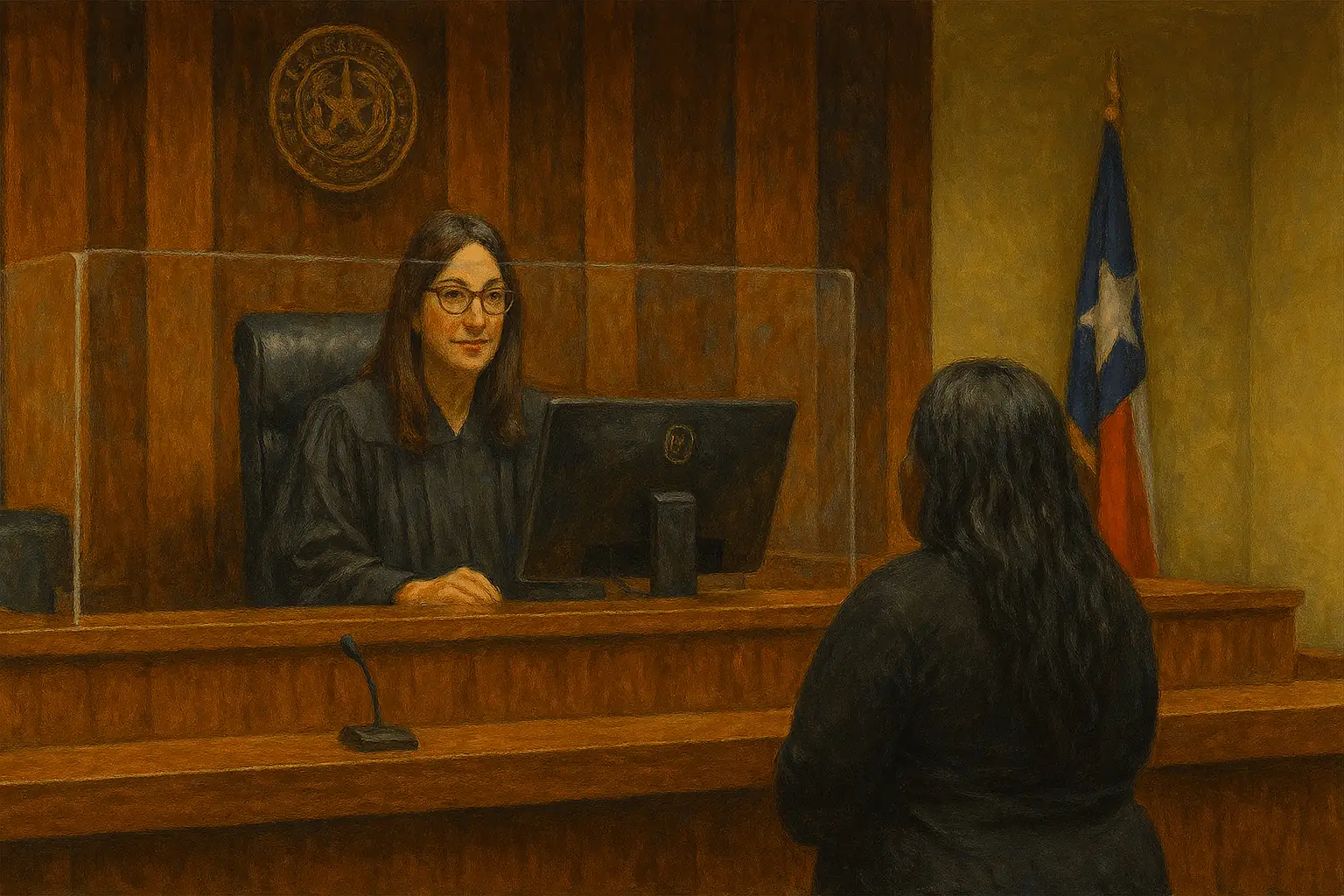Municipal courts in Texas are the judicial organ of city government. These courts primarily handle traffic cases, fine-only misdemeanors, and violations of city ordinances. As of October 2023, there were 952 municipal courts in Texas, according to the state Office of Court Administration.
Cities in Texas typically operate only one municipal court. In some cities, particularly in very small communities, the mayor serves as the ex officio judge of the municipal court, effectively acting as the judge without a separate court.1
Cities finance the costs of municipal courts, including the salaries of judges.
Jurisdiction of Municipal Courts
Municipal courts have a significantly narrower jurisdiction than county and district courts, which have authority over a broader range of civil and criminal cases. Municipal courts also differ procedurally from county and district courts in several significant ways.
Texas municipal courts have exclusive original jurisdiction over violations of city ordinances.2 They share jurisdiction with Justice of the Peace Courts in state-law criminal cases that are punishable by fine only (Class C misdemeanor cases).3
Depending on local ordinances, municipal judges may impose fines of up to $2,000 for violations of ordinances relating to fire safety, zoning, or public health, and up to $4,000 for illegal dumping of garbage. For other violations, the maximum fine is $500.4
Procedures of Municipal Courts
Defendants in municipal court frequently appear pro se (without an attorney), whereas in county and district courts—where more serious criminal and civil cases are heard—defendants are more likely to have legal representation, and the proceedings tend to be more formal and complex.
In general, municipal courts are designed to handle minor cases quickly and efficiently, with less formality and fewer procedural complexities. Municipal court judges usually make decisions without a jury. This contrasts with county and district courts, where jury trials are common for felony cases or significant civil disputes.

Another key difference is the appeals process. Municipal courts are generally not courts of record, meaning they don’t keep official transcripts of proceedings. As a result, most appeals from municipal court decisions are retried de novo (from the beginning).5 In contrast, county and district courts maintain detailed records, so appeals are based on the official transcripts, focusing on legal errors rather than a full retrial.
Sentencing in municipal courts is typically limited to fines, community service, or other minor penalties, with no jail time for most offenses. By contrast, county and district courts have the authority to impose jail or prison sentences, probation, or other more significant penalties for criminal convictions.
Selection of Municipal Judges
Judges of municipal courts in home-rule cities are selected under the municipality‘s charter provisions. The vast majority of municipal court judges in Texas are appointed, not elected.
In general-law cities (i.e., those without a charter), the mayor serves as the ex officio judge of the municipal court unless the city by ordinance creates the position of judge.
Qualifications of Municipal Judges
Qualifications for the position of municipal court judge are set by the city. Unlike district and county court judges, municipal court judges are not required to have a law degree and be licensed attorneys, unless the city charter requires that.
Nevertheless, many municipal courts judges are licensed attorneys.
Both attorney and non-attorney judges are required to complete annual judicial education, which is offered by the Texas Municipal Courts Education Center, among others. The Texas Municipal Courts Education Center is a state-funded nonprofit organization, which receives grants from a judicial training fund administered by the Court of Criminal Appeals.

Term of Office
A municipal judge’s term of office is two years unless the city charter provides for a longer term.6 Most municipal judges in Texas have a two-year term, while some have a four-year term.
However, Section 29.005 of the Government Code provides for the automatic reappointment of municipal judges unless the appointing authority decides to appoint someone else.
Other Duties of Municipal Courts
In addition to deciding traffic cases, code enforcement cases, other cases within their jurisdiction, municipal court judges in Texas have a variety of other powers, including:
- Issuing emergency protective orders;7
- Issuing arrest warrants and search warrants;8
- Jail magistration (explained below);9
- Dangerous dog determinations;10
- Administering oaths of office to city officials;11
- Performing wedding ceremonies.12
Jail Magistration
Although municipal courts judges do not try serious criminal cases, they may assist county governments by serving in the capacity of a committing magistrate at the jail.
Jail magistrations are the first appearance of an arrested person before a court. Judges at these hearings review the charges and determine whether there was probable cause for the arrest and the continuing detention of the defendant.
Although they may only try misdemeanor cases, municipal court judges have the authority to magistrate either felony or misdemeanor defendants.
Appellate Procedures
Municipal courts in Texas are generally not courts “of record,” which means that they don’t keep a record of all proceedings that can be reviewed by a higher court. For this reason, most appeals from municipal courts are tried a second time (de novo) in a county court.
However, state law allows cities to elect to make their courts into courts of record, in which case the appellate court (either a county or district court) can review the case documents from the original trial.
Additional Reading
Sources Cited
- Texas Government Code § 29.004(b) ↩︎
- Texas Government Code § 29.003(a)(1) ↩︎
- Texas Government Code § 29.003(b) ↩︎
- Texas Government Code § 54.001(b) ↩︎
- Code of Criminal Procedure art. 44.17 ↩︎
- Texas Government Code § 29.005 ↩︎
- Code of Criminal Procedure art. 17.292 ↩︎
- Code of Criminal Procedure arts. 15.01, 18.01 ↩︎
- Code of Criminal Procedure art. 15.17 ↩︎
- Texas Health and Safety Code § 822.0421 ↩︎
- Texas Government Code § 602.002(5) ↩︎
- Texas Family Code § 2.202(a)(4) ↩︎



